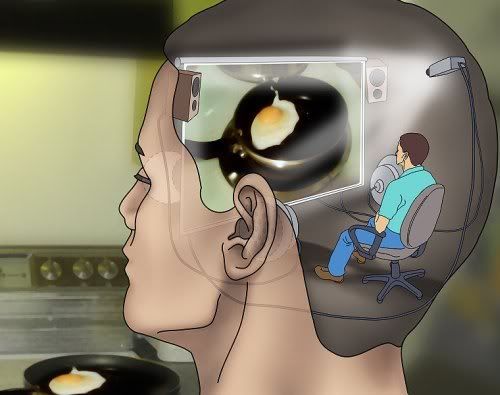

|
May Day Old age is the most unexpected of things that can happen to man...You cannot live through it without falling into frustration and cynicism unless you have before you a great idea which raises you above personal misery, above weakness, above all kinds of perfidy and baseness. — Leon Trotsky As long as I breathe I hope. As long as I breathe I shall fight for
the future, that radiant future, |
1 May 2012
|
|
Still true today? Human thought is not a firework, ever shooting off fresh forms and shapes as it burns; it is a tree, growing very slowly — you can watch it long and see no movement — very silently, unnoticed. It was planted in the world many thousand years ago, a tiny, sickly plant. And men guarded it and tended it, and gave up life and fame to aid its growth. In the hot days of their youth, they came to the gate of the garden and knocked, begging to be let in, and to be counted among the gardeners. And their young companions without called to them to come back, and play the man with bow and spear, and win sweet smiles from rosy lips, and take their part amid the feast, and dance, not stoop with wrinkled brows, at weaklings’ work. And the passers by mocked them and called shame, and others cried out to stone them. And still they stayed there laboring, that the tree might grow a little, and they died and were forgotten. And the tree grew fair and strong. The storms of ignorance passed over it, and harmed it not. The fierce fires of superstition soared around it; but men leaped into the flames and beat them back, perishing, and the tree grew. With the sweat of their brow have men nourished its green leaves. Their tears have moistened the earth about it. With their blood they have watered its roots. The seasons have come and passed, and the tree has grown and flourished. And its branches have spread far and high, and ever fresh shoots are bursting forth, and ever new leaves unfolding to the light. But they are all part of the one tree — the tree that was planted on the first birthday of the human race. The stem that bears them springs from the gnarled old trunk that was green and soft when white-haired Time was a little child; the sap that feeds them is drawn up through the roots that twine and twist about the bones of the ages that are dead. — Jerome K. Jerome, born this day in 1859 The human mind can no more produce an original thought than a tree can bear an original fruit. |
2 May 2012
|
|
Gratitude ‘We can only be said to be alive in those moments when our hearts are conscious of our treasures.’ — Thornton Wilder |
3 May 2012
|
|
82 Commandments of Gurdjieff Here are some of my favorites: 1 Ground your attention on yourself. Be conscious at every moment of
what you are thinking, sensing, feeling, desiring and doing. 71 Wherever you live, always find a space that you devote to the sacred. |
4 May 2012
|
|
Sticks Every year Thanksgiving night we flocked out behind Dad as he dragged the Santa suit to the road and draped it over a kind of crucifix he’d built out of metal pole in the yard. Super Bowl week the pole was dressed in a jersey and Rod’s helmet and Rod had to clear it with Dad if he wanted to take the helmet off. On the Fourth of July the pole was Uncle Sam, on Veteran’s Day a soldier, on Halloween a ghost. The pole was Dad’s only concession to glee. We were allowed a single Crayola from the box at a time. One Christmas Eve he shrieked at Kimmie for wasting an apple slice. He hovered over us as we poured ketchup saying: good enough good enough good enough. Birthday parties consisted of cupcakes, no ice cream. The first I brought a date over she said: what’s with your dad and that pole? and I sat there blinking. We left home, married, had children of our own, found the seeds of meanness blooming also within us. Dad began dressing the pole with more complexity and less discernible logic. He draped some kind of fur over it on Groundhog Day and lugged out a floodlight to ensure a shadow. When an earthquake struck Chile he lay the pole on its side and spray painted a rift in the earth. Mom died and he dressed the pole as Death and hung from the crossbar photos of Mom as a baby. We’d stop by and find odd talismans from his youth arranged around the base: army medals, theater tickets, old sweatshirts, tubes of Mom’s makeup. One autumn he painted the pole bright yellow. He covered it with cotton swabs that winter for warmth and provided offspring by hammering in six crossed sticks around the yard. He ran lengths of string between the pole and the sticks, and taped to the string letters of apology, admissions of error, pleas for understanding, all written in a frantic hand on index cards. He painted a sign saying LOVE and hung it from the pole and another that said FORGIVE? and then he died in the hall with the radio on and we sold the house to a young couple who yanked out the pole and the sticks and left them by the road on garbage day. — George Saunders, originally published in
Story, Winter 1995. |
5 May 2012
|
|
Faith I ‘Faith is believing something you know ain’t true,’ said Mark Twain. We know what he meant, and the kind of faith that he was protesting. But there’s a more general kind of faith that is sustaining and healthy and, perhaps, necessary for us to live from day to day. We need to have faith in all the quotidien miracles that keep our boats afloat; without faith, we would all be overcome with anxiety about the tenuous basis of our existence. All pro-social behaviors are undertaken on faith that others will reciprocate (unless we simply fear ostracism or legal repercussions). Kant’s test of the universalized maxim is an article of faith. Those of us who advocate and organize for peace and justice and living in harmony with the Earth must constantly put aside apocalyptic scenarios which are both terrifying and realistic. We must convince ourselves each day that what we do matters, and that humankind (or metazoan life on earth) will not succumb in the near future to any number of cataclysms of human origin. Many, many people are doing their best to propel humanity toward love and sharing, away from cruelty, indifference and greed. We have faith that these efforts will collectively create a synergy that none of us individually might be able to articulate. — Josh Mitteldorf |
6 May 2012
|
|
Paracelsus I was not born — Robert Browning celebrates his 200th birthday today In truth we have lived carelessly and well. |
7 May 2012
|
|
Prosperity for the taking An alien lands in New Orleans and asks an Earthling about the devastation. “So – is there no building material for repairing the damage?” “Actually,” says the Earthling, “there are building materials stockpiled just out of town.” “So, there are no workers to do the job?” “Actually, there are hordes of unemployed workers who would love to have the work.” “So – what’s the problem?” “Well, the way things work here, we need these pieces of green paper before we can get started...” “Beam me up! There’s no intelligent life on this planet!” — Ellen Brown The depression we’re in is essentially gratuitous: we don’t need to
be suffering so much pain and destroying so many lives. We could end it
both more easily and more quickly than anyone imagines—anyone, that is,
except those who have actually studied the economics of depressed
economies and the historical evidence on how policies work in such
economies. — Paul Krugman |
8 May 2012
|
|
Remember that what we see is a small part of an interconnected whole Bateson argued that there is a pathology inherent in all conscious thinking, and that pathology comes from taking a small linear segment of a circle of causation and taking it to be the whole thing. We take certain actions in our lives, which we think are just directed towards simple goal-seeking of some kind and are then, once again, blindsided when the effects of that ripple through our lives and come back to us in some unexpected way, when they come, in some way, to bite us in the ass. We in our arrogance as a society and in our belief in conscious purpose are able to transform the Earth in various ways and are then completely surprised and blindsided when those transformations come back on us in some possibly toxic form. This habit of taking a small arc of the circle to be the whole thing is related to our illusory notion of the self – to our view of taking that which we are able to consciously scan, in our own processes, in our thoughts, our own feelings, our own memories, and take that to be the whole. — Stephen Nachmanovitch (The Power of Poetry: How it Works) Gregory Bateson was born this day in 1904 |
9 May 2012
|
|
The Other Half of Physical Reality Meditating this morning, I asked myself what I wanted for a birthday present and the answer came to me: I want to have a transcendent experience. So what would that be like? I asked myself. I am hemmed in by my own ‘realism’ (came the answer), but part of me knows that, even in the strictest physical sense, my idea of realism is narrow and restrictive. 19th Century physics is about interactions among separate particles. But in quantum mechanics, every electron is a manifestation of universal electron-stuff. All electrons are identical in a much deeper sense than identical twins or identical billiard balls. The equations take explicit account of the fact that electrons are always swapping identities while we’re not looking and the fact that we don’t know whether the electron we see is this one or that one is built into the physics. The principle of wave/particle duality is deeply embedded in quantum physics. Although, particles are only half the story, my ‘realism’ limits my perception to that half and I am unaware of the spread-out wave nature of reality. My birthday wish is more modest than ‘seeing God’, or receiving shaktipat. I want to have direct experience of the other half of physical reality. — Josh Mitteldorf |
10 May 2012
|
|
Ground Rule for Research “Never be so focused on what you are looking for that you overlook the thing you actually find.” — Ann Patchett |
11 May 2012
|
|
Faith II At the root of all faith is the belief that events are being guided
in some way beyond our ken for benevolent purposes. Faith is faith, and
by definition not subject to empirical proof or disproof; nevertheless
it is interesting to ask about this proposition: First, if there is
scientific foundation for this kind of belief, and Second whether it is
conducive to our wellbeing to view the world through this lens. The answer to the second question is a
definitive Yes/a>. — Josh Mitteldorf |
12 May 2012
|
|
Animal Mothers Nursing across species lines: Watch this. |
13 May 2012
|
|
An anatomy of the World And new philosophy calls all in doubt, — John Donne, from “An Anatomy of the World” |
14 May 2012
|
|
200 years of progress in wealth and life expectancy Hans Rosling uses animated graphics to illustrate a stunningly positive narrative about 200 years of progress in the context of world history. — Watch! |
15 May 2012
|
|
Satori: a practical guide for Westerners Enlightenment is a highly-evolved state of consciousness. If you can achieve it, all f your problems will be solved at once, in a blinding flash, and they will stay solved forever. From that moment on, no matter where you are or what happens to you, you will be at peace. Your mind will be cleared of impure, negative, painful thoughts. Your mind will be like a mirror, and your thoughts will be like images in that mirror that come and go freely, leaving no stain on its surface. Your false, painful identity as a selfish ego will be swept away, and your true identity as an expansive, accepting, compassionate Buddha will be revealed. You will become both desireless and fearless, and in doing so, you will become free of all suffering... Salzman goes on to describe his tireless pursuit of enlightenment as a young man. Unfortunately, when it comes to spiritual quests, it turns out that
diligence can work against you. You have to extinguish your ego to
become enlightened, it’s true, but here’s the paradox: Whenever you
strive toward any goal, including the goal of extinguishing the ego, you
end up giving your ego a workout. So the harder you try to become
egoless, the more egotistical you become. Welcome to Paradox World, the
theme park that you can never leave, because you carry it around with
you. |
16 May 2012
|
|
Now is the time to understand — Hafiz (tr Ladinsky) Once again I have borrowed from Joe Riley’s precious selection of poems at Panhala. |
17 May 2012
|
|
Piet Hein gets his name writ in lights Piet Hein was an activist in the Danish Resistance during WWII, a mathematician, poet and designer. In 1959, he won an architectural contest with design in the shape of a superellipse. The shape can be anywhere on a continuum between an ellipse at one end and a rectangle with square corners at the other, and it’s all done by playing with the number ‘2’ in the Pythagorean formula x2 + y2=r2. (The original idea for the shape is at least as old as Gabriel Lamé in the 19th Century.) This spring, in a telescope survey, a dwarf galaxy 70 million light years from Earth was discovered with the shape of a superellipse. Nothing like it was predicted or expected. It was a complete surprise, and it was christened LEDA 074886. Piet Hein, who died in 1996, has been fittingly memorialized. |
18 May 2012
|
|
Wise men teeming with passionate intensity Moral certainty is always a sign of cultural inferiority. The more
uncivilized the man, the surer he is that he knows precisely what is
right and what is wrong. All human progress, even in morals, has been
the work of men who have doubted the current moral values, not of men
who have whooped them up and tried to enforce them. The truly civilized
man is always skeptical and tolerant, in this field as in all others.
His culture is based on ‘I am not too sure.’ The best lack all conviction, while the worst The whole problem with the world is that fools and fanatics are always
so certain of themselves, and wiser people so full of doubts. |
19 May 2012
|
|
Stop evaluating. — Josh Mitteldorf |
20 May 2012
|
|
Without quantum mechanics, there is no Newtonian physics;
...And vice versa. |
21 May 2012
|
|
American impressionist Charles Tomlinson Griffes was an American composer of the early 20th Century, who wrote this tone poem for orchestra based on D.H. Lawrence’s first novel, both titled The White Peacock. |
22 May 2012
|
|
Anamnesia On Feb. 20, 1974, [Phillip K] Dick was hit with the force of an extraordinary revelation after a visit to the dentist for an impacted wisdom tooth for which he had received a dose of sodium pentothal. A young woman delivered a bottle of Darvon tablets to his apartment in Fullerton, Calif. She was wearing a necklace with the pendant of a golden fish... The fish pendant began to emit a golden ray of light, and Dick suddenly experienced what he called, with a nod to Plato, anamnesis. [He] claimed to have access to what philosophers call the faculty of ‘intellectual intuition’: the direct perception by the mind of a metaphysical reality behind screens of appearance...Yet the golden fish episode was just the beginning... [A college drop-out, Dick was self-taught.] Dick’s reading was haphazard and eclectic. Encyclopedias permitted an admittedly untutored rapidity of association that lent a certain formal and systematic coherence to his wide-ranging obsessions...Skimming through and across multiple encyclopedia entries, Dick found links and correspondences of ideas everywhere. He also stumbled into the primary texts of a number of philosophers and theologians — notably the pre-Socratics, Plato, Meister Eckhart, Spinoza, Hegel, Schopenhauer, Marx, Whitehead, Heidegger and Hans Jonas. His interpretations are sometimes quite bizarre but often compelling. “My exegesis, then, is an attempt to understand my own understanding.” ...“Exegesis” also possesses many passages of genuine brilliance and is marked by an utter and utterly disarming sincerity. At times, as in the epigraph above, Dick falls into melancholic dejection and despair. But at other moments, like some latter day Simon Magus, he is possessed of a manic swelling-up of the ego to unify with the divine: “I was in the mind of God.” — from Simon Critchleys NYTimes column, The Stone “The core of my writing is not art but truth.” - P. K. Dick |
23 May 2012
|
|
He who is in love is wise and is becoming wiser, sees newly every time he looks at the object beloved, drawing from it with his eyes and his mind those virtues which it possesses. — Ralph Waldo Emerson |
24 May 2012
|
|
Wisdom of Charles Eisenstein The war against the self is the internalization of the war against nature. We have been taught that we need an act of will to overcome our base natures. But when we try too hard to be good, we only separate ourselves from others. Constrained by habits and acculturalization, we have less choice than we imagine. Many apparently momentous decisions were actually determined within us long ago. In the long run, the most powerful choice we can make is where to focus our attention. Attention is healing. Attention is the bridge in relationship. And attention facilitates change and learning. —paraphrased from a day with Charles Eisenstein A leader is someone who facilities the capacity of others to share their gifts. |
25 May 2012
|
|
From a simpler time Moondog, the Viking of Sixth Avenue, was a street performer, composer and poet who chose a simple life, outdoors in the city and became a city icon in the 1940s, and continued up through 1974, though he became successful and established enough to release several LPs, one with Julie Andrews as vocalist, and to be introduced to Toscanini and work with Leonard Bernstein. Competition (making music on the street) was thinner, and our attention wasn’t so fragmented. Moondog could be ‘discovered’ wearing homemade Norse garb and making interesting music on a Manhattan street corner. He was blind from early adulthood. He was not homeless. He was a harbinger of the beat generation, and a one-man demonstration of an alternative way to live. Moondog was born in Kansas on this day in 1919, as
Louis Thomas Hardin. |
26 May 2012
|
|
Gout of the spirit Conceit is a comfortable disease, and the more insidious because it festers while contributing to the disinclination of the afflicted to pursue the jocund comradery that is potentially its best remedy. — Josh Mitteldorf If I’m luckier than I have any right to be, my friends will recognize this as a plea for help. |
27 May 2012
|
|
How to observe Memorial Day Let us visualize, individually and collectively, in as much detail as we can evoke, a peaceful transition to the sustainable, just and democratic society that we know must be our future. We can start by remembering the Berlin Wall and Nelson Mandela. |
28 May 2012
|
|
Life and Art Not while the fever of the blood is strong, — Emma Lazarus |
29 May 2012
|
|
Learning to work with the strengths and weaknesses of our brains Daniel Kahneman talks about two modes in which we work: System I and System II. System I is autopilot — walking or riding a bicycle, talking, anything we can do ‘without thinking about it’. System II requires a conscious effort. 2 x 2 = 4 is done with System I. 17 x 24 = 408 is done with System II. Associative memory is System I. Consciously trying to retrieve something from memory is System II. The great majority of our activities is run by System I, and this has consequences, good and bad, that we might manage better if we understand how System I works. One thing System I does too well is to generalize from a single story. What it often fails to do is to extract a common thread from many stories. We are not surprised to learn that we often walk around operating on System I. We may be surprised to discover the extent to which System I hires System II to be its ‘explainer’. This is rationalization. We decide what to believe and what to do on ‘autopilot’, and instead of using our logical brains to check the validity of our intuitions, we engage System II to shore up a predetermined conclusion. Bad bad bad! ... or at least dangerous to our attunement with reality. — Watch or listen to Kahneman speaking at Natl Academy of the Sciences last week about what he has learned, using clever experiments to study System I behaviors from the outside. |
30 May 2012
|
|
Training with intermittent high intensity exercise Another study has come out with a simple, comfortable formula that many should be able to tolerate. The recipe is to divide each minute into 30 seconds of low-intensity, followed by 20 seconds of medium-intensity exercise and 10 seconds of sprinting. Repeat 5 times (5 minutes) then rest for 2. Repeat three or four times. In a Danish study, people who trained this way were healthier, happier and ran faster than those who spent more time exercising at a lower intensity. |
31 May 2012
|






























